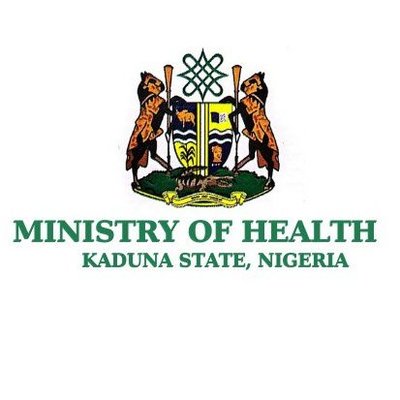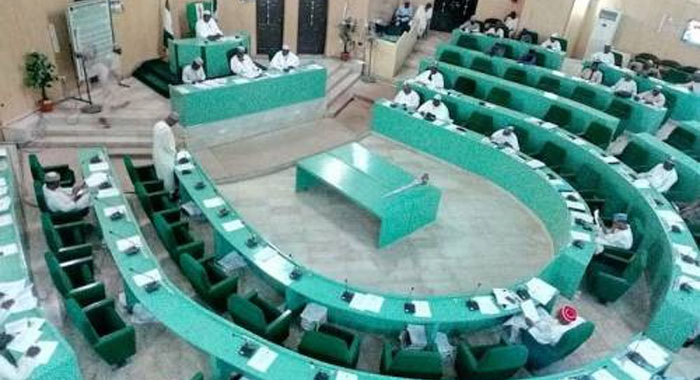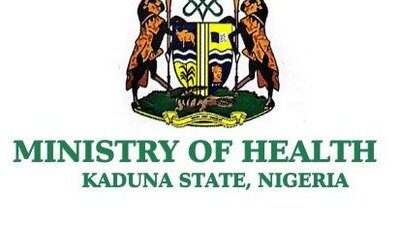Health
KDSG set to commission 300-bed ultra-modern hospital
By Austine Emmanuel, Kaduna
Kaduna State Governor, Mallam Uba Sani has given the marching order to complete the 300-bed ultra-modern hospital, initiated in 2009 by a former Governor of the State, Arch. Namadi Sambo.
The Commissioner of Health, Kaduna State Hajiya Umma Ahmed, made this known during the one day high level stakeholders’ engagement meeting, organized by the Kaduna Maternal Accountability Mechanism, (KADMAM) with support from Evidence for Action.
Speaking at the event in Kaduna on Wednesday, the Commissioner noted that most of the projects in Kaduna state have reached 70% to 80% and the governor has given a timeline for them to be completed before the year runs out.
She reiterated that the State Government is not only focusing on building physical structures, but also looking at improving the welfare package of every health worker in Kaduna State by giving them the enabling environment to discharge their duty effectively, as the best approach to tackle the menace of brain drain that is ravaging the health sector.
“The present administration through it’s sustained agenda placed priority in the area of health, most especially human capital development and this is the reason why in the 100 days in office of governor Uba Sani he approved the implementation of the doctor’s increments because it was observed that most of them are not comfortable with the remuneration compare to other states.
“We are all aware that the brain-drain is caused by the poor remuneration and increasing their remuneration will motivate them, because most of them are patriotic citizens that want to work for their state and I am sure that with this improvement they will be encouraged to stay and prospective ones too will want to work with the State.
“Not only their area of remuneration, but all encompassing, making sure that all health workers are comfortable and have conducive learning environments so that other places will not attract them out of the State. We will continue to work hard and identify challenges and address them.
“We are looking at commissioning that hospital this year by the Grace of God because most of the projects have reached 70-80 percent completion and we have been assured because the governor has given us the marching order that he wants the hospital to be completed this year, and he gave a timeline and we are working towards that, and it will be commissioned before the end of the year,” she said.
In his remarks, the Co-Chairman, Kaduna Maternal Accountability Mechanism, (KADMAM) Mr. Isah Gidado said the event was basically to use the 2023 budget performance presentation as an evidence for cash backing advocacy and also to solicit government stakeholders commitment to ensuring releases and cash backing of the 2024 health sector budget.
Isah stressed that the engagement will achieve a lot because it is an advocacy meeting to the planning and budget commission as well as the ministry of finance.
Isah said, “15 percent of the annual budget was given to the health sector last year and 2024 respectively. At least, we want the performance of this year to be better than last year.
“We want them to improve service delivery to the sector, like enough supply of drugs, equipment and other facilities, invest in training and retraining their workers for quality and efficient care services that are related to the elderly, aged, pregnant mothers, mothers and newborn babies in the state.”
Speaking with newsmen shortly after the meeting, the Permanent Secretary, Ministry of Health, Kaduna State, Hajiya Aisha Abubakar Sadiq, said that the event has identified some gaps, particularly in the area of cash backing, noting that government stakeholders will sit down and find the way to limit the delays they encounter when trying to access funds for their interventions.
She also lamented over the reality of high level maternal mortality rate in Kaduna state on the ground of cultural, religious, institutional and service delivery, adding that the ministry is working with several partners like UNICEF, Save the Children, World Health organization (WHO) amongst others to proffer both preventive and lasting solution to the menace.
Health
FG bans use of foreign syringes, needles in tertiary hospitals


The Federal Government has mandated all Chief Medical Directors (CMDs) and Medical Directors (MDs) of Federal Tertiary Hospitals to procure needles and syringes solely from NAFDAC-approved local manufacturers.
The new directive is contained in a circular addressed to all CMDs and MDs signed by the Minister of State for Health, Dr Tunji Alausa, on Friday.
The minister said that the directive was aimed at boosting domestic production and shielding the country’s manufacturing sector from the influx of foreign goods.
The circular also mandated NAFDAC to stop issuing licences for the importation of foreign manufactured needles and syringes.
Alausa said the health sector had dentified local pharmaceutical industries that produce needles and syringes that were in serious trouble because of the practice.
He also said that out of the nine local pharmaceutical companies that produced needles and syringes eight years ago, six have folded up due to the dumping of largely substandard goods into the market.
“Mr President has directed that this must stop. We all agreed to take the necessary steps to immediately remedy this sad situation.
“Pursuant to this, NAFDAC has been mandated to stop issuing licences for the importation of foreign manufactured needles and syringes.
“It is also to de-list companies involved in the importation of these products going forward,” he said.
Alausa said ”all our tertiary hospitals are hereby directed to procure needles and syringes for your hospital needs from only the NAFDAC-approved local manufacturers listed below are listed either directly or through any of their vendors.
“EL-Salmat Pharmaceuticals Company Ltd Block, Brand Name: Salmaject, HMA Medical Ltd., with brand Name: Deleject and Afrimedical Manufacturing and Supplies Ltd.”
He also listed some of the distributors of the listed companies in some states of the Federation for easy access to assist in making the procurement process easier in the various institutions.
Health
KDSG trains 180 Red Cross volunteers on Lassa Fever intervention


The Kaduna State Ministry of Health has begun a three-day training for 180 Red Cross volunteers on Lassa fever intervention.
The training, which is facilitated by the ministry and funded by the Red Cross, is meant to equip the volunteers selected from 5 LGAs in the state with necessary skills.
The volunteers were drawn from Zaria, Igabi, Kaduna South, Kaduna North and Chikun Divisions.
The State Epidemiologist, Dr Jeremiah Dikwu, said the volunteers were trained with the knowledge needed to massively intervene during cases of Lassa fever in the state.
He said that the intervention would include Risk Communication and Active Case Search, Psychological First Aid, Rodent Control and Hygiene Promotion for the next 3 months.
Dikwu said the training started with 30 volunteers on surveillance and would end with the training of 150 volunteers on Risk Communication and Community Engagement .
According to him, Lassa fever is a viral hemorrhagic fever transmitted by rats.
He added that Lassa fever has been known since the 1950s, but the virus was not identified until 1969, when two missionary nurses died from it in the town of Lassa in Nigeria.
Dikwu added that Lassa fever was caused by a single stranded RNA virus and disseminated systemic primary viral infection.
“The main feature of fatal illness is impaired or delayed cellular immunity leading to fulminant viraemia,” he said
The epidemiologist said that Lassa fever presented symptoms and signs indistinguishable from those of febrile illnesses such as malaria and other viral hemorrhagic fevers such as Ebola.
“It is difficult to diagnose clinically but should be suspected in patients with fever (e”38°C) not responding adequately to antimalarial and antibiotic drugs.
“The most useful clinical predictors of Lassa fever are fever, pharyngitis, retrosternal pain, and proteinuria for diagnosis; and fever, sore throat, and vomiting for outcome,” Dikwu said.
He said that Ribavirin and general support were needed.
“Ribavirin is almost twice as effective when given intravenously as when taken orally, and if given within six days of the start of illness it may reduce deaths by 90 percent.
“Dehydration, oedema, hypotension, and poor renal function are common; fluid replacement or the use of blood transfusion requires careful monitoring,” he said.
Dikwu said the volunteers would be carrying out Risk communication and Community engagement, Active Case Search, Psychological First Aid, Rodent Control and Hygiene Promotion
Health
Assembly passes Kano Pre-Marital Health Screening Bill


Kano State House of Assembly has passed a bill for a law to compel intending couples to undergo HIV, hepatitis and sickle cell anaemia screening before marriage.
The passage followed deliberations in the Committee of the Whole House during plenary session,
presided over by the Speaker, Ismail Falgore on Monday in Kano.
After deliberations, the lawmakers approved the 3rd reading of the bill, read by the Deputy Clerk, Alhaji Nasiru Magaji.
Shortly after passage of the bill, the Majority Leader of the house, Lawan Hussein (NNPP-Dala), stated that “any person
intending to marry shall first submit self for medical examinations.”
He said the bill was considered and passed after the 3rd reading, following various legislative processes.
The leader further said that the bill was passed because the state had been battling with different health issues, including
HIV because people go into marriages without medical screening.
He said that the bill, if signed into law, would save many lives and curb the spread of life-threatening diseases.
“The bill will safeguard the health of citizens by institutionalising pre-marital testing to check the spread of diseases
like hepatitis, HIV and sickle cell anaemia,” he added.
-
capital market2 years ago
Rt.briscoe, FBNH, Others halts negative performance of stock market
-
Finance3 months ago
Court orders Sen. Victor Umeh to repay N136m bank debt to AMCON
-



 Abuja Update2 months ago
Abuja Update2 months agoUNDP, FG partnership needed to achieve inclusion, equity- Minister
-
Abuja Update1 month ago
Banks drive stock market performance with N147bn gain
-



 Business2 weeks ago
Business2 weeks agoTingo Group unveils Tingo Electric, Tingo Cola drink at Lagos launch
-



 Health3 weeks ago
Health3 weeks agoCapacity training will reduce migration of health workers- NPHCDA
-
News4 months ago
Oil thieves sponsoring malicious media campaign against Navy – Spokesman
-



 Infotech1 month ago
Infotech1 month agoWorld Backup Day: NITDA urges Nigerians to ensure backup of data










